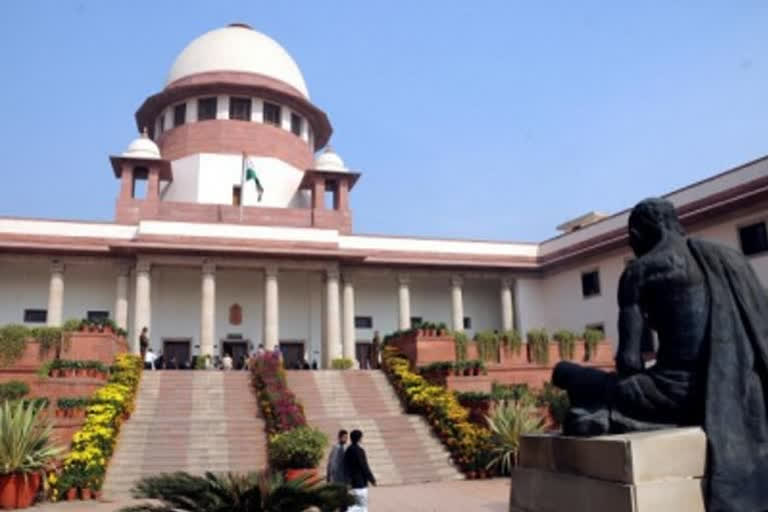New Delhi:The Supreme Court Monday referred to a five-judge Constitution bench a suo motu case concerning the framing of uniform guidelines for the trial courts on granting "real and meaningful opportunity" on the issue of the sentence to the convicts held guilty for offences entailing capital punishment. The top court said that this order is necessitated due to a difference of opinion and approach amongst various judgements, on the question of whether, after recording a conviction for a capital offence, under law, the court is obligated to conduct a separate hearing on the issue of sentence.
A bench of Chief Justice UU Lalit and Justices S Ravindra Bhat and Sudhanshu Dhulia referred to various verdicts on the issue passed by different benches of the apex court including in a 1983 judgement of Bachan Singh versus State of Punjab, where the top court, in its majority judgment, upheld the constitutional validity of the death sentence, on the condition that it could be imposed only in the "rarest of rare" cases. The bench said this court in Bachan Singh (1983 verdict) had taken into consideration the fairness afforded to a convict by a separate hearing, as an important safeguard to uphold the imposition of the death sentence in the rarest of rare cases, by relying upon the recommendations of the 48th Law Commission Report.
"Consequently, this court is of the view that a reference to a larger bench of five Judges is necessary for this purpose. Let this matter be placed before the Chief Justice of India for appropriate orders in this regard", it said. The bench said that in the 1983 verdict the court was conscious of the safeguard of a separate hearing, on the question of sentence, and articulated such a safeguard as a valuable right, which ensures to a convict, to urge why in the circumstances of his or her case, the extreme penalty of death ought not to be imposed. The bench noted that it is also a fact that in all cases where the imposition of capital punishment is a choice of the sentence, aggravating circumstances would always be on the record, and would be part of the prosecution's evidence, leading to conviction, whereas the accused can scarcely be expected to place mitigating circumstances on the record, for the reason that the stage for doing so is after conviction.
"This places the convict at a hopeless disadvantage, tilting the scales heavily against him. This court is of the opinion that it is necessary to have clarity in the matter to ensure a uniform approach on the question of granting real and meaningful opportunity, as opposed to a formal hearing, to the accused/convict, on the issue of the sentence", the bench said. It added that the question of what constitutes 'sufficient time' at the trial court stage, in this manner appears not to have been addressed in the light of the express holding in Bachan Singh. "This, in the court's considered opinion, requires consideration and clarity", the bench said.
